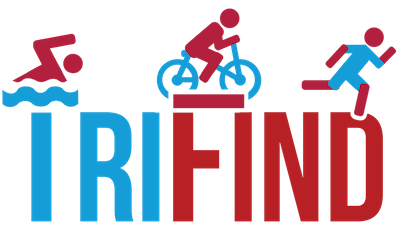A Discussion on Off-Season Weight Lifting
OFF SEASON WEIGHT LIFTING
Every year, right around this time, weight lifting suddenly becomes a hot topic that exercise physiologists and coaches argue about. Basically, what spurs this arguement is a new study that comes out or a position paper that is written that contradicts what someone said last year. Well, this year has been no different. Already, I have read three new arguements in well respected journals, all saying different things. So, why am I telling you this. Well, basically, to let you know that weightlifting is still suggested as a good cross-training and off-season focus, if athletes want to improve on performances of the year gone by. What is the focus:
For endurance athletes, specific weight lifting has already been occuring thoughout the season. Most athletes start with general weight lifting exercises at the beginning of the season, then progress to event specific exercise as they get closer to their "A" race. About three weeks prior to their "A" race, weight lifting stops to allow for the body to recover and taper. Then the cycle starts over again for the next "A" race. The goal of weight lifting during the season is specific to the athletes needs. Generally, the coach or strength and conditioning expert is working on generating force on the bike or run; Working on flexiblity and strength for swimming or maintaining muscles to help with muscle breakdown that occurs during intense training.
Off season weight lifting tends to have a different focus. As an endurance athlete, there are several aspects that one can focus on in the off season. A great example is power to weight ratio. Power to weight ratio is usually specific to biking and running but is practical for other sports also. Power to weight ratio is calculated by weighing the athlete then having them perform sport specific exercises involving power. Then a ratio is developed based on this data. Example: Julie Runsalot weighs 110 lbs and can press in a leg sled 315lbs. Her power to weight ratio using lbs is: ~3 to 1. That is excellent for a female endurance athlete. A coach then looks at these numbers and develops the athletes weight lifting program. This is just an example. Other aspects that an athlete may need to focus on in the off season are: re-developing muscle balance in certain joints, improving speed with plyometrics or similar exercises, increasing core strength, or increasing flexiblity of a joint or joints. The list can go on and on. Problems with weight lifting can arrise. A perfect example is, when the athlete starts developing more muscle than needed. This is an occurance and balancing act that needs to be watched by the coach and athlete. For the most part, more generalized/basic exercises are used to develop general aspects for an athlete. Examples may be: Leg sled press 3 sets of 6 with 200 lbs. Focus: increasing power for all hip extensor muscles specifically the glutes and quads which are used for climbing hills on the bike and run.
Here are a few suggustions for Off-Season weight lifting:
- Develop a goals sheet with your coach or by yourself that focuses on strengths and weaknesses.
- Focus your off season weight lifting on specific areas of the body that have imbalances.
- While focusing on specific areas, continue to perform full body workouts. In the off season it is important to develop the entire body not just one specific area.
- Strengthen your core. Use specifc exercises that improve posture and core strength. Your core is the base inwhich speed and power are developed in your training cycle.
- Watch for excess muscle development. This is one area that needs lots of focus. It is very easy to put on 8 to 10 lbs of muscle in the off season when performing basic exercises with heavy weights. Watch for this, if this starts to happen, back off on the weights, increase reps or decrease the number of sessions you perform per month.
- Consult or hire a coach or strength and conditioning expert. These experts are very good at developing programs that are specific to your needs. They can monitor your progress more closely and develop testing workouts that monitor strength and power.
To conclude: Weight lifting is very benefical for the endurance athlete. During the off season, exercises are focused more on improving muscle weakness, improving on basic skills, developing muscle balance in joints, and improving core strength. The key as with all endurance athletes, is to monitor your muscle growth. It is expected that an athlete will increase muscle size and consequently weight. Watch for large gains and monitor your power to weight ratio with a coach or strength and conditioning expert. Most of all, have fun. Add in some cross-training with group exercise classes or other outdoor activities. Keep it focused but have fun at the same time. We spend all season being focused and very regimented. In the off-season, keep the weights simple and watch that weight!!
Thanks and hope you enjoyed!!
Jon


